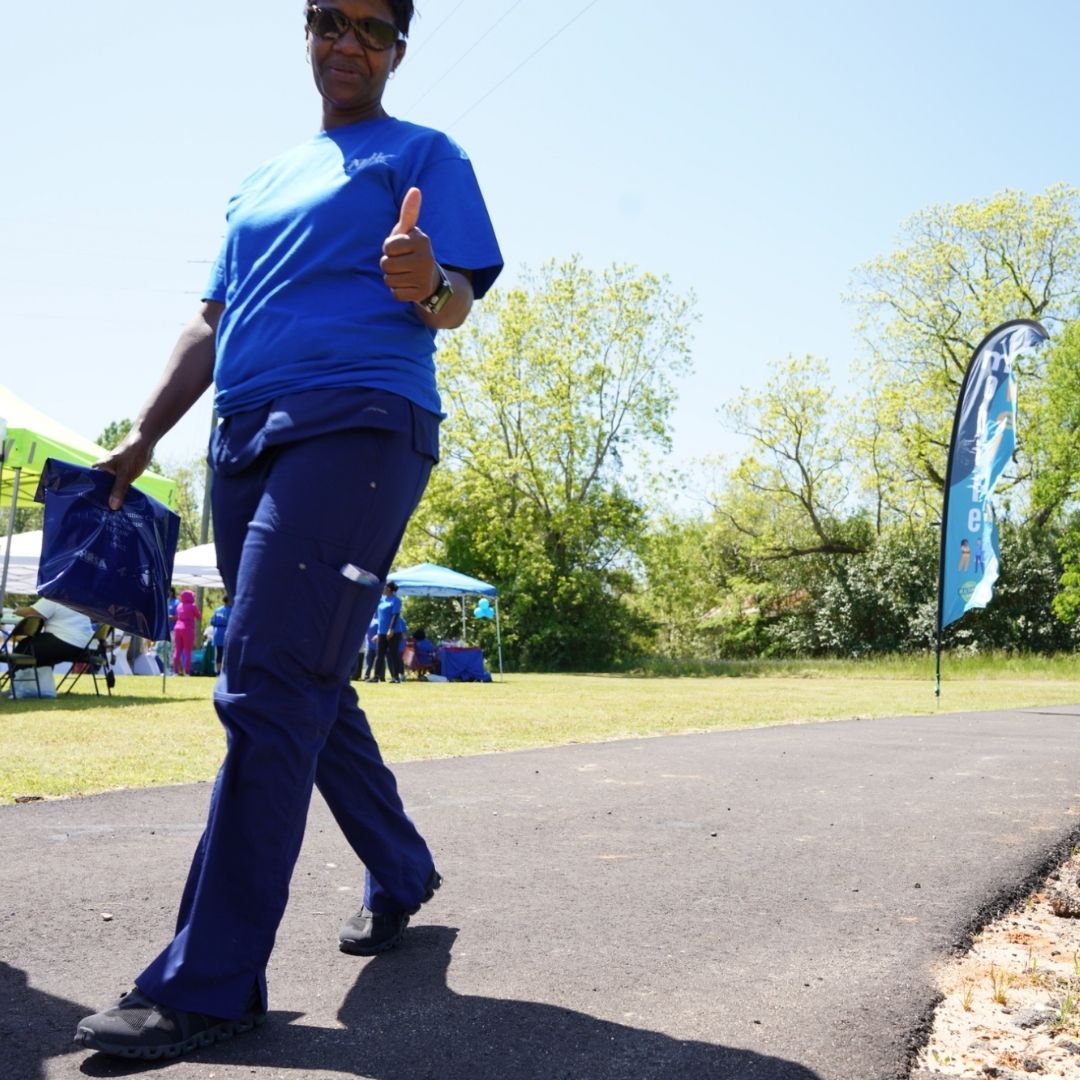 Written by: Anne Heaney
Written by: Anne Heaney
It was sunny and 85 degrees in Orrville, Alabama on April 23 — the perfect weather to open a new walking path to the community.
The Orrville Building Healthy Communities (BHC) coalition, an initiative of the University of Alabama at Birmingham Obesity Health Disparities Research Center (OHDRC) and Minority Health & Health Disparities Research Center (MHRC), has been developing a space for community members to enjoy being active outdoors. The walking path, located at Keith High School, has been renovated and resurfaced over the last two years.
The track, renamed Orrville Community Walking Trail, opened to the public with nearly 100 residents, partners, and city and county leaders participating. The day began with the Promoting a Healthier You Walk at the Orrville Community Center in memory of Orrville resident Rhonda Harris-Vaughan.
Each year, the walk registration fees and sponsorships support a worthy cause. To prioritize furthering students’ education, this year, event proceeds were donated to the Keith High School College Scholarship. The Orrville BHC coalition surpassed its $500 fundraising goal, raising over $2,000 for college scholarships for Keith High School students.
Grace Okoro, Program Manager II for the OHDRC, said the event was a great time for everyone involved. “You could just see the love and support in the community,” she said.
Working together to make an impact
A place for community members to be active is a central part of the OHDRC’s Community Action Plan for Orrville. According to Brenda Collins, Orrville BHC coalition member, having a trail is of the utmost importance to the community. “Doctors will tell you that regular walking strengthens your heart, lungs, bones, and muscles, and it also helps your body resist and fight illnesses.”
To make the walking trail a reality, the Orrville BHC coalition partnered with the Dallas County Board of Education and the Black Belt Community Foundation.
“It was easy to say yes to this partnership because health and wellness is one of the focus areas in our community outreach efforts,” said Felecia L. Lucky, President of the Black Belt Community Foundation.
“Our goal in this partnership is to work with our partners, not do everything ourselves. This walking path was successful because it was truly a partnership,” Okoro said.
Collins added that she knew this project was crucial in order to see her family and community improve their lifestyle. “In my life and in my family, I have seen obesity and health issues stemming from unhealthy habits as well as from genetics. I wanted to see my family and the community improve their lifestyle so they can have a better and longer life.”
On top of the physical benefits, the walking trail will act as a hub for residents to unwind and spend time outside after a long day. “Walking also increases energy and positively impacts our mood. Now that we have a beautiful new walking trail, I hope all of my neighbors will come walk with me,” Collins said.